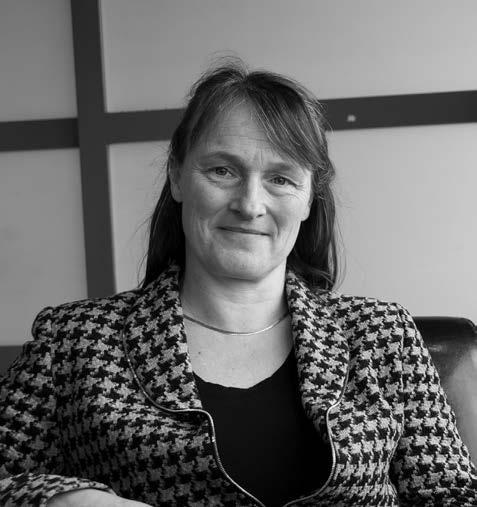
3 minute read
Annex 3 Brief financial overview
As an independent foundation and independent administrative body the RvA is a non-profit organisation. Our independence is guaranteed via the Dutch National Accreditation Body Appointment Act (Wet aanwijzing nationale accreditatie-instantie’) and by a modern governance structure with the Board of Supervisors, the Accreditation Committee and the Stakeholder advisory panel. We also guarantee our independence by a healthy but limited amount of equity capital. This makes us resilient against financial risks which might occur when conformity assessing organisations decide to discontinue accreditation because the RvA has taken a decision which is disagreeable to them.
The figures in this Annex have been taken as a summary from the adopted annual accounts for 2014. No rights can be derived from them. From our website you can download the full annual accounts as prepared and adopted after approval by the Board of Supervisors and the Minister of Economic Affairs and provided with an unqualified report. You can obviously also approach us to request that a copy be sent. We can be contacted via telephone number +31 (0)30 239 45 00.
The amount
Of Equity
capital
Was
evaluated in 2014. Partly considering the changed status of the RvA in 2010, it has been decided to maximise the objective for the equity capital at 4 million euros. The required amount of the equity capital is evaluated every five years.
The income of the RvA is generated particularly from activities carried out on the basis of rates. We determine these rates on the basis of a discussion of the budget with the User Council and after approval by the Board of Supervisors and the Minister of Economic Affairs.
The activities level in 2014 was approx. 2.4% higher than estimated. This was particularly the consequence of:
• extra assessments in connection with the Construction Products Regulation (they have been completed in the meantime);
• new accreditations according to the CCKL Code of Practice (in 2014 this was allowed for the last time).
Although this involved having to hire an extra number of external assessors, nevertheless a higher positive result was able to be achieved. The result is added to the reserves.
The (foreseen) decrease in turnover is caused by completing a big assessment assignment for the Ministry of Social Affairs and Employment. This meant a 3% decrease in turnover.
The starting point – subject to special circumstances – is that the rates increase by not more than the index of Statistics Netherlands (CBS) for business services. Special circumstances apply to the coming years.
Many lead assessors are taking retirement. Their successors must be settled in within due time. That is why the rates in 2013 increased additionally. In 2014 the rates were adjusted as follows:
In 2014 the RvA appointed KPMG as the auditor for the financial years of 2014 up to and including 2016.
This was based on a comprehensive selection process involving four accountancy firms.
Annex 4 Our work in figures
Trust also requires that audits are possible. In this Annex you will find a summary in figures of our activities in 2014. As a comparison we also added previous figures in several cases.
Distribution of billed time over type of investigation (RvA mark)
Assessment type2014 in %2013 in %2012 in %
Distribution of billed time over the type of investigation, broken down into role in the assessment team (RvA mark)
Role2014 in %2013 in %2012 in %
Assessment type201420132012
Initial assessment131412
Audit assessment8910072
Document audit403
Re-assessment444367
Total150157154
Disputes, suspensions and withdrawals
A dispute is a difference of opinion between the assessed party and the RvA assessor about the interpretation of the standard requirements. Organisations can temporarily lose their accreditation if it turns out that they no longer meet the set standards. This entails a suspension. In that case they are given six months to implement the required improvements and to have them assessed. It can also be the case that organisations lose their accreditation permanently. This entails a withdrawal: the accreditation agreement will be dissolved. Suspensions and withdrawals are voluntary or imposed. In both cases an organisation can no longer use the accreditation mark for the respective activities.
*Of which one partial suspension**Of which two partial suspensions***Of which six partial suspensions
*Of which one partial withdrawal**Of which two partial withdrawals *** Of which five partial withdrawals****Of which nine partial withdrawals
A part of the withdrawals with regard to the CCKL Code of Practice set out above are a result of the transition to the international ISO 15189 standard.





